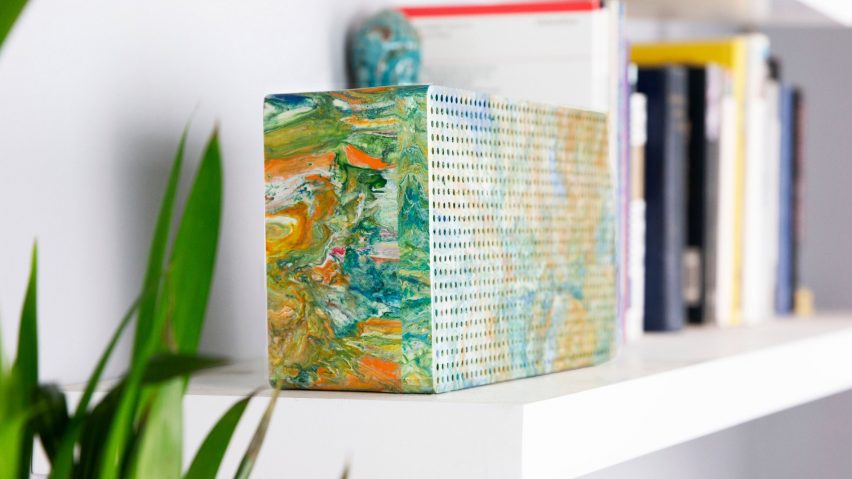
Gomi portable speakers are made from non-recyclable plastic waste
Brighton-based design studio Gomi has created a portable bluetooth speaker using plastic waste that is deemed non-recyclable by local councils in the UK.
Each Gomi speaker features a rectangular body formed from colourful marble-effect plastic. The equivalent of 100 plastic bags in non-recyclable – or flexible – plastic go into the body of each speaker.
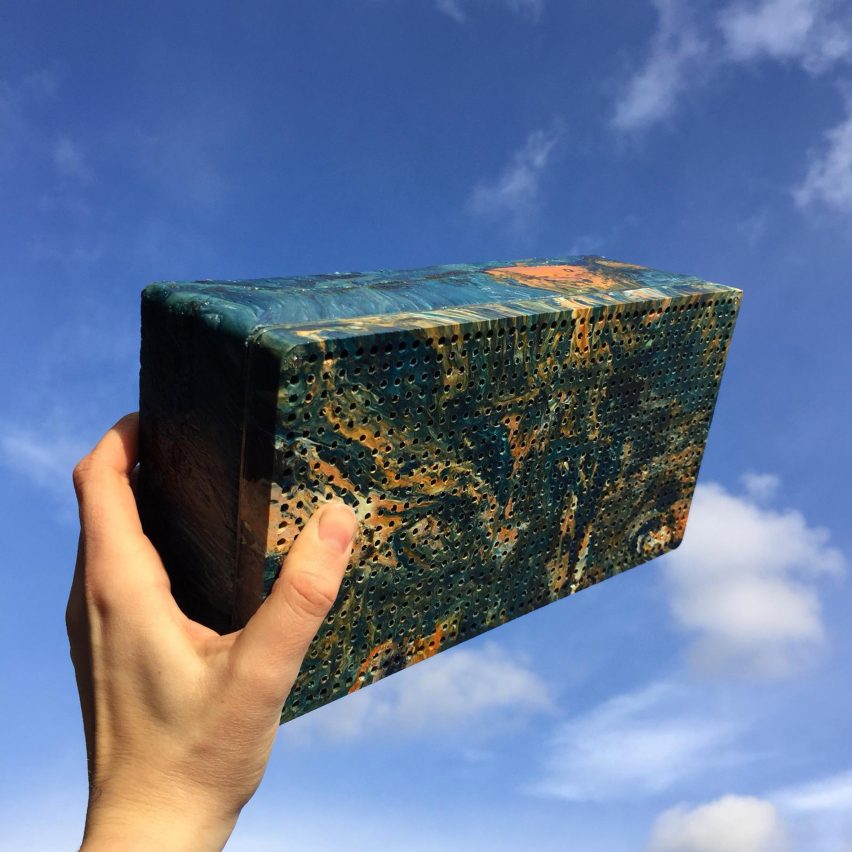
Flexible plastic includes materials such as plastic bags and bubble wrap made of low-density polyethylene, and is not accepted by UK councils for recycling.
The speaker consists of three modular components that can be easily separated and melted down into new parts for future products without losing any material value.
Each speaker is hand-marbled, which means that every product has its own individual aesthetic and colour pattern, depending on the particular plastic waste that has gone into it.
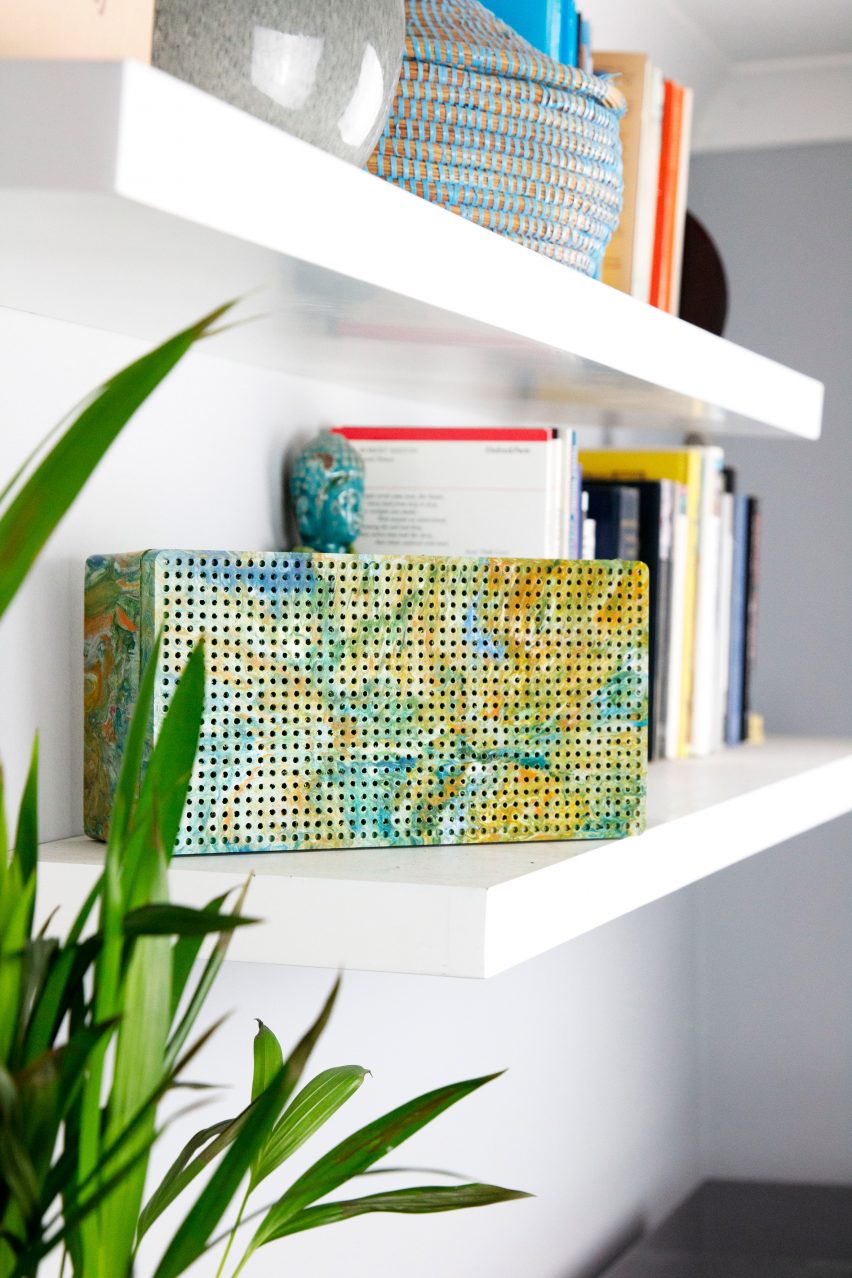
The studio worked with local food wholesalers who typically use a large amount of packaging that is usually thrown away.
"With our bluetooth speakers, we want to intercept a waste stream that would otherwise be landfilled or incinerated," said Meades.
It was important that the speaker was "not only aesthetically desirable, but also sounds great". To achieve this, the studio worked with electronic engineers and audio professionals to hone the sound of the speaker.
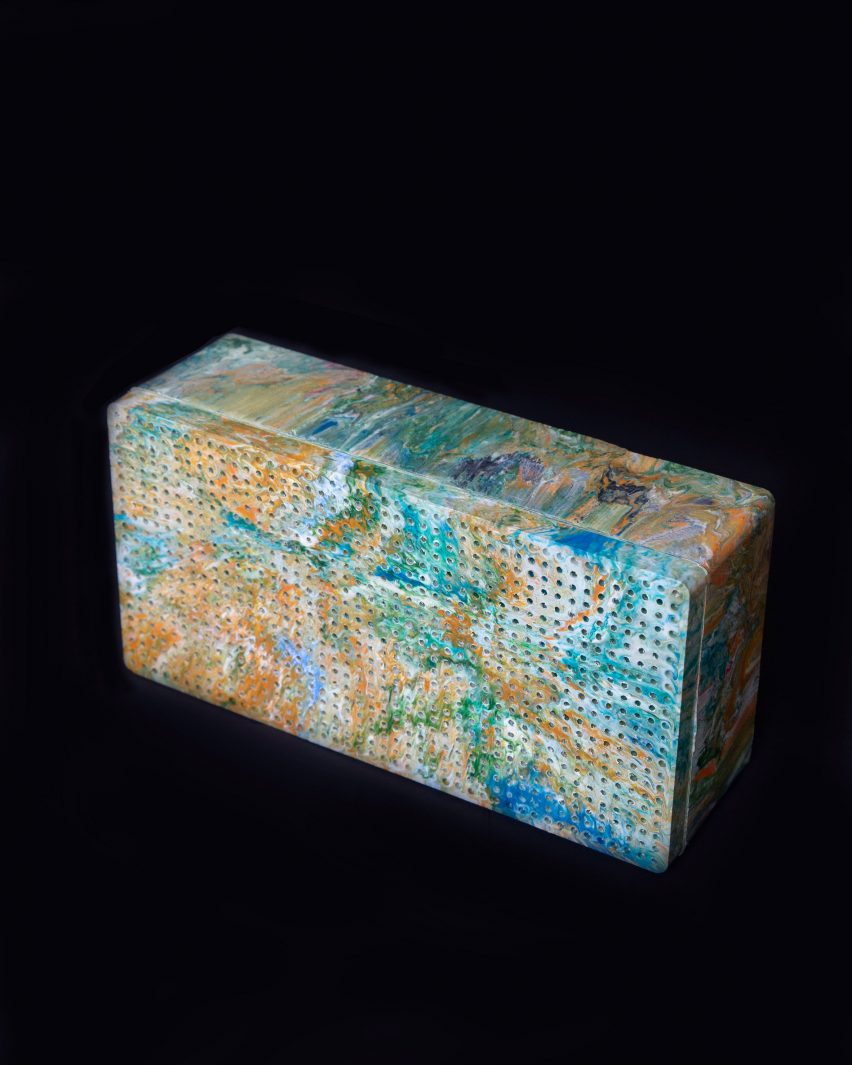
The studio embarked on the project after its research found that plastic waste makes up 85 per cent of the pollution on beaches across the world, and that the UK throws away 300 million kilos of flexible plastic each year.
"We were inspired by the cradle-to-cradle design process, thinking about our products full life-cycle right from the beginning of our design process," said Gomi co-founder Tom Meades.
"Flexible plastics are widely regarded as non-recyclable by UK councils, and so we thought this would be the perfect material to harness and show that through innovative design this can be valuable, and does not have to end up as waste polluting our environment. Instead, we can craft this material into desirable objects," he explained.
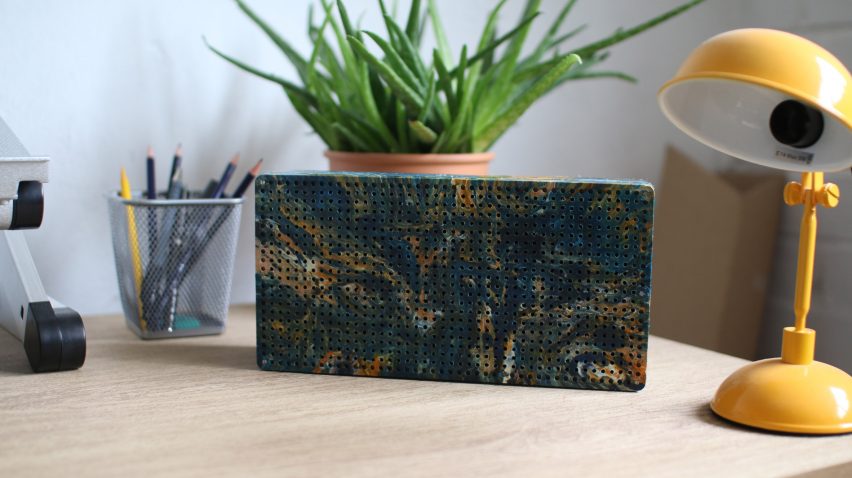
In a bid to move towards a circular economy, the design studio is aiming to offer free repairs for their products and a system where customers can return the products to be recycled.
Gomi are one of many studios looking at alternative ways to use plastic waste. In Thessaloniki, The New Raw design studio has set up a laboratory called The Zero Waste Lab, that residents can use to turn any plastic waste they collect into 3D-printed street furniture.